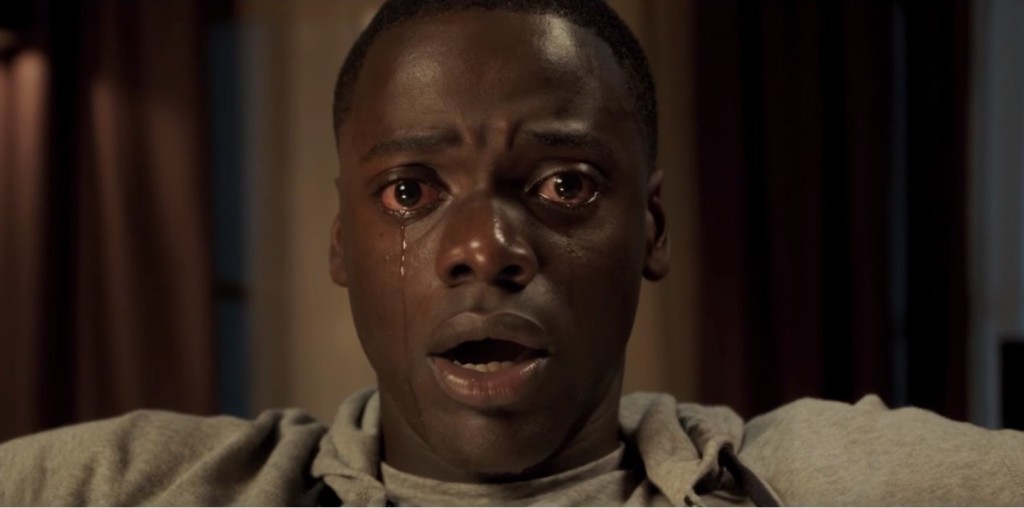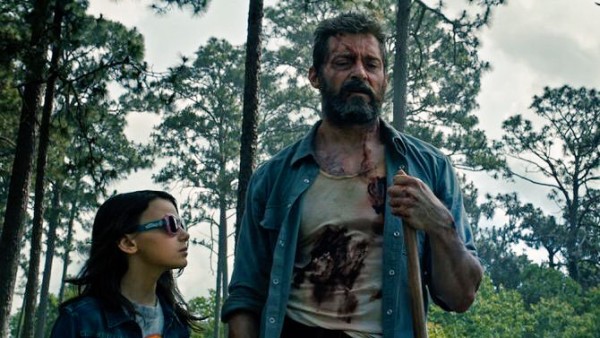This has been a strange year at the box office. Did you know that the number 1 comedy of the year so far is the geriatric knee-slapper, Going in Style? Which has made 43 million dollars?
Surefire hits like Pirates of the Caribbean have imploded. Dusty superheroes like Wolverine have come back to life. And mega-franchises like Fast and Furious are doing two-thirds of the local business they used to, with studios not giving a shit since all they care about now is global.
Now, if we’re being honest, none of these movies I’ve mentioned affect you, the screenwriter reading this website. The writers who write these films have fought their way up a Game of Thrones like ladder that, hopefully, one day, you’ll find yourself climbing as well.
But right now, all you want to do is get your foot in the door, preferably in as little time as possible. And there are three ways to do that. The first is to write a great script that features either a great concept, an exceptional understanding of character development, or a unique voice, and parlay that into a high Black List showing. This will get you an agent and get your script out to a bunch of people so that everyone knows your name.
The second is to write a spec in one of the big genres (action, adventure, sci-fi), which might get you a starter writing gig on one of the franchises your script is written in. You probably won’t get a credit but you will be working. This is what happened, for example, with Nicole Perlman. She wrote a spec about the Challenger shuttle crash, and that allowed her to get first shot at another “space” gig, Guardians of the Galaxy (Perlman did manage to get that credit and is now scripting Captain Marvel).
Finally, there’s the third – and fastest – way to break in. Write a horror spec and direct it yourself. This is, by far, the quickest way for a screenwriter to get into the industry. I’ve seen it time and time again. The Duffer Brothers, the guys who did Stranger Things? Their breakout spec was a horror flick called “Hidden” that they directed right before the now famous Netflix show.
Even if directing doesn’t interest you, consider making it interest you. It’s so freaking cheap to make a movie these days. It’s still relatively expensive, I guess. But if the wannabe writer-directors of the 90s who had to scrape together a million bucks to shoot a film on 16mm time-traveled to today and saw how cheaply we could make a good-looking feature film? They would scold us for the excuses we make not to.
All of this is somewhat roundabout to today’s article focus. But I promise it will come together at the end. In regards to writing horror films, there were two horror films this year that took big risks, each coming at the genre in a unique way. One of those went on to become one of the most profitable films in history. The other didn’t even make it to its second weekend. And I want to discuss why one sailed and the other failed, despite the fact that both scripts were good.
The surprise hit was Get Out (script review), which has currently grossed 175 million dollars.
The unfortunate dud was A Cure For Wellness (script review), which made 8 million dollars.
Here’s another shocker. A Cure For Wellness was directed by a 20 year veteran director who had helmed some of the biggest movies in Hollywood. And Get Out was directed by someone who had never directed in his life. Not even a short movie.
Both of these projects did what I tell you guys to do: Find a fresh angle into a genre. The horror genre has ghosts, zombies, vampires, torture porn, contained horror, and they play those cards over and over again. What are you going to do that makes the genre feel fresh?
A Cure For Wellness is about a businessman who goes to a faraway bizarre treatment center to retrieve a co-worker for the company and gets stuck there. Get Out is about a black man who goes to meet his white girlfriend’s parents for the first time. As you can see, the stories share some DNA. Hell, they even both have a scene where a car hits a deer (seriously, screenwriters, please stop writing this scene).
So why is it that 20 times as many people chose to see Get Out as did A Cure For Wellness? Don’t give me the cheat answer. “A Cure For Wellness looked dumb, Carson. Get Out looked good.” One of your jobs as a screenwriter is to understand SPECIFICALLY why movies do well and why they fail, so that you can use that knowledge to make a more informed decision when coming up with your next concept.
The number 1 screenwriting mistake I see, by far, is misconceived concepts. Concepts that aren’t movies but that screenwriters, for some reason, think are movies. You guys see a few of them every Saturday on Amateur Offerings. So the large majority of you reading this have made far worse miscalculations on your concepts than A Cure For Wellness. Why is Get Out the better concept? Why is it that when people saw the Get Out trailer, they wanted to see the movie whereas when they saw the A Cure For Wellness trailer, they didn’t?
I’ll give you a hint. There’s one other film this year that defied expectations in a big way. Logan. The Wolverine franchise was dead. The movies sucked. No one was showing up anymore. Then Logan comes out and does 100 million more than the last film off a much smaller budget. How did it accomplish this? What did it do differently? Think…
The answer, if you guys haven’t figured it out yet, is that Get Out focused on character. A Cure For Wellness focused on plot. When you watch the Get Out trailer, you see a human situation, a loving but difficult relationship, then later that relationship in danger. When you watch A Cure For Wellness’s trailer, there’s a wall between you and the characters. Hell, you don’t even know the main character after you’ve finished the trailer. You see his face. You know he has to get somebody. But you don’t know anything about him. Therefore you don’t care about him. Therefore you have no interest putting up your hard-earned money to find out if he succeeds or not.
I said I’d get to the point eventually so I will. If you want to break in as a screenwriter – the fastest way to do it is to write a horror spec EXPLORING THE HUMAN CONDITION IN SOME WAY and then direct it yourself. Plot is important. But audiences don’t connect with plot. They connect with people who experience the same life problems that they do. Which brings us right back to yesterday. Vivien is such a dark script. It has its own challenges in drawing an audience but that is exactly the kind of chance you should be taking. Not writing some silly horror movie. Write a horror movie where you’re deeply exploring people and the human condition. This is how you connect with audiences.
Now there’s a caveat to this. You have to understand how to do good character work. You can’t just show two people in a relationship have a fight and think you’ve done your job. You have to find a theme, you have to create conflict within the characters (Am I good enough for this girl?), conflict within the key relationship (race), characters have to arc. That stuff takes practice. But once you understand this stuff, you become a screenwriting superhero. You can now do things that 99.999999% of the population cannot. So that’s my advice to you guys today.
But ONLY if you want to get into this business quickly.
Write a horror spec EXPLORING THE HUMAN CONDITION IN SOME WAY and then direct it yourself.
Good luck!





